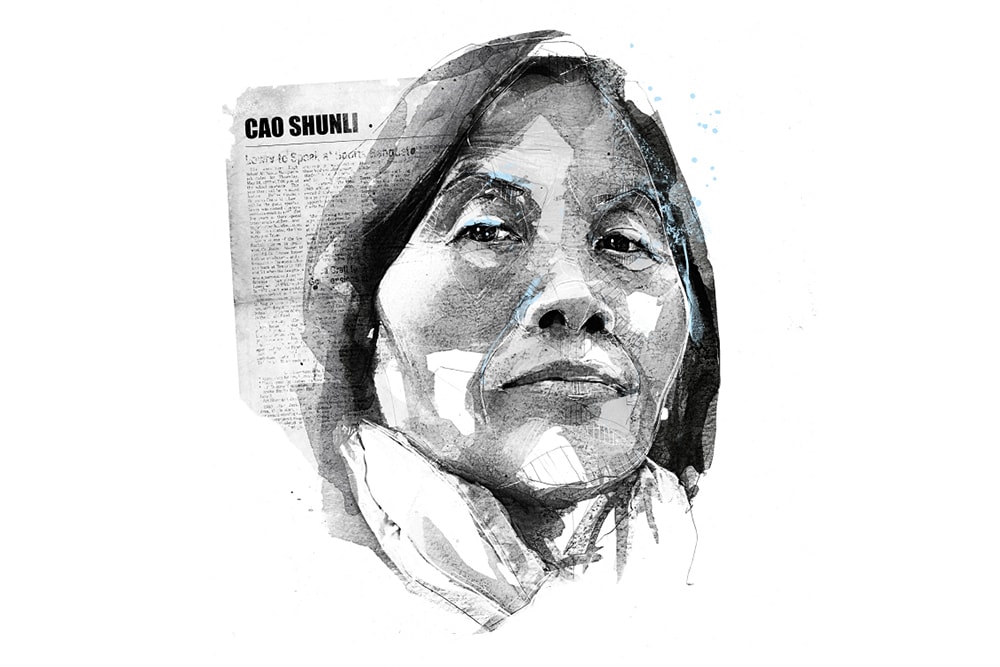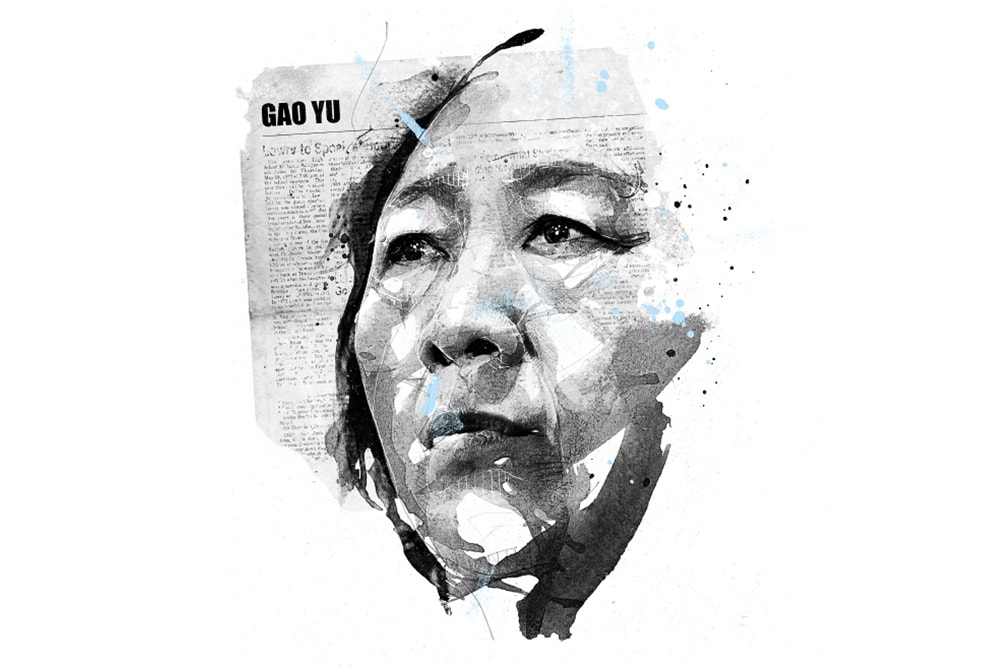In March 2014, lawyer Cao Shunli died alone in a military hospital. She had been arrested five months earlier as she tried to board a plane that would have taken her to Geneva to take part in training, in advance of a UN session where China would be scrutinised on its human rights record.
An article on the China Change website on The Life and Death of Cao Shunli quotes the Chinese lawyer: "I was so saddened. I thought: you [China] are such a big government, but you do this to one individual. I don't understand it."
In March 2014, Cao Shunli died alone, aged 52, in a military hospital as her friends and family pleaded with Chinese officials to be with her. She had been arrested five months earlier as she tried to board a plane that would have taken her to Geneva to take part in training, in advance of a United Nations session where China would be scrutinised on its human rights record.
On 14 September 2013 Cao had arrived at Beijing airport to catch a flight to Switzerland. She had been invited by the International Service for Human Rights to take part in its training program, in preparation for the review of China’s human rights that was to be held that October. She was arrested at the departure area, on what was to be her last day of freedom. She was eventually charged with ‘picking quarrels to create disturbances’.
In prison Cao’s health quickly declined. Denied treatment for existing liver disease and other medical problems, she was, in November 2013, also diagnosed with acute pneumonia. Despite increasingly urgent pleas from her family, she was only moved to a military hospital on 19 February 2014, five months after her arrest. It was too late. She reportedly spent the last month of her life in a coma. Supporters who gathered at the hospital as her health failed were arrested. When they tried to stage a public mourning on hearing of her death on 14 March 2014, they were stopped by police.
After graduating in law in the mid-1980s, Cao worked for the Ministry of Labour, but in 2002 she lost her job after exposing corruption in her work unit around housing distribution. She spent two long stints in Re-Education Through Labour camps between 2009 and 2011, where the dire conditions and lack of medical attention had a severe impact on her health.
As part of the United Nations Universal Periodic Review (UPR) process, human rights organisations must be part of the consultation and drafting of government reports – rules that are ignored in China. In October 2012 Cao had petitioned the Ministry of Foreign Affairs for information on accessing the consultation on China, but was denied. She persisted, as she had done since 2008, gathering many petitions – some reports say 1,000s – sending them to the Ministry, and urging that they be included in government reports to the various UN human rights mechanisms.
Then, in June 2013, Cao led a two-month ‘camp-in’ outside the Ministry. The protestors’ demands were straightforward: that human rights defenders should be consulted and part of the working groups drafting China’s report to the UN, as recommended by the UN itself. They also requested that petitions gathered over the years be included to create a report that ‘truthfully and comprehensively reflect[s] the human rights situation in China’. Police broke up the camp-in in mid-July, briefly arresting the participants.
The outcome of China’s UPR was presented to the UN Human Rights Council in March 2014, just weeks after Cao’s death. Even inside the UN Palais des Nations in Geneva, the Chinese representatives wielded heavy handed measures to stop an NGO-led attempt to hold a moment’s silence in her honour during the session. In a manoeuvre that in any other circumstances would appear comical, it raised a point of order that UN rules only allow for ‘general comments’, and that did not include silence.
Cao was a final nominee for the Martin Ennals Award 2014, which produced a moving video about her work that includes footage of the Chinese quashing of the motion of silence at the UN.
Cao said before her death: “Our impact may be large, may be small, and may be nothing. But we must try. It is our duty to the dispossessed and it is the right of civil society.”
In 2016 civil society groups Human Rights Campaign in China, Civil Rights & Livelihood Watch, and Rights Defense Network launched the Cao Shunli Memorial Award for Human Rights Defenders to “commemorate Ms. Cao Shunli, so her life’s story will inspire generations to come.”
In 2019 UN experts renewed their call for a comprehensive and independent investigation into Cao’s death by Chinese authorities “with a view to bringing those responsible to justice.”
They added: “It is a source of tremendous regret for us that Cao Shunli’s tireless work in defence of human rights ultimately culminated in her death, and our thoughts are with her family and friends at this time.”
Ten years after Cao’s death, human rights groups decried the lack of any meaningful action by Chinese authorities to pursue justice and accountability.
“The lack of any progress in achieving accountability underscores the urgent need for continued international attention and pressure on the Chinese government to ensure justice for Cao and all human rights defenders who face persecution for their work,” they said in a joint statement.
Despite the attempt of the Chinese delegation to interrupt the session at the UN Human Rights Council in March 2024, civil society representatives were able to pay tribute to Cao.
“Dearest Big Sister Cao, rest in peace, there will be light at the end of the night.”
In April 2024, Geneva’s Administrative Council announced that it will install a public monument in honor of human rights defenders as it cited the courage and legacy of Cao.
Illustration by Florian Nicolle



